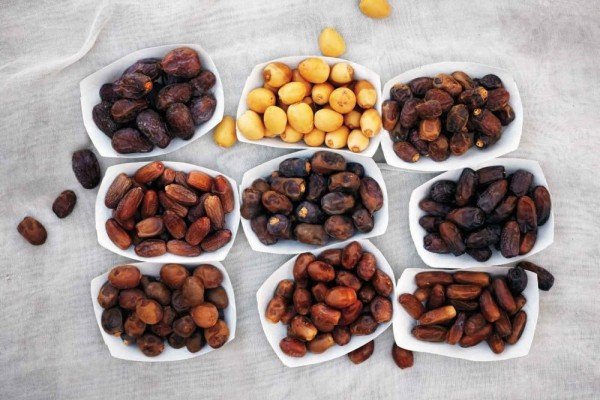
Kurma Suppliers in Malaysia: Fueling the Demand for Dates
Dates, with their delightful sweetness and dense nutrition, have become a popular fruit in Malaysia. To meet this growing demand, a network of kurma suppliers, meaning “date suppliers” in Malay, has flourished across the country. These suppliers play a vital role in ensuring Malaysians have access to a year-round supply of high-quality dates. This blog post dives into the world of kurma suppliers in Malaysia, exploring their activities and the impact they have on the Malaysian date market.
Who are Kurma Suppliers in Malaysia?
Kurma suppliers in Malaysia are companies that import dates in bulk from major date-producing countries like Saudi Arabia, Egypt, Iran, and Tunisia. They act as intermediaries between international date growers and exporters, and Malaysian retailers, distributors, and consumers. Date suppliers can be categorized into two main groups:
- Pemborong Kurma: These are wholesalers who import large quantities of dates and distribute them to retailers, supermarkets, and other bulk buyers. They typically focus on a wide variety of date types and cater to businesses that require large volumes of dates.
- Retail Date suppliers: These suppliers import dates in smaller quantities and cater directly to consumers. They may sell through physical stores, online platforms, or participate in farmers’ markets. Retail Date suppliers often focus on specific date varieties, premium offerings, or niche markets.
What Do Date suppliers Do?
The core function of Date suppliers is to source, import, store, and distribute dates. However, their activities encompass a wider range of services:
- Sourcing and Importing: Date suppliers establish relationships with date growers and processors in major producing countries. They negotiate prices, quantities, and ensure the quality of the dates being imported. This may involve traveling to date farms, inspecting crops, and understanding different date varieties.
- Storage and Handling: Dates are perishable goods and require proper storage facilities to maintain freshness and quality. Date suppliers have warehouses equipped with temperature and humidity control systems to ensure optimal storage conditions. Proper storage practices help prevent spoilage and extend the shelf life of dates.
- Sorting and Grading: Dates are sorted and graded based on variety, size, quality, and ripeness. This allows them to cater to different market segments. For instance, some retailers might prioritize large, premium dates for display purposes, while others might focus on smaller, more affordable options.
- Packaging and Labeling: Date suppliers may repackage imported dates into smaller consumer-friendly packaging. They also ensure proper labeling with information like origin, variety, expiry date, and nutritional information. Attractive packaging can play a role in marketing dates to consumers.
- Distribution: Pemborong Kurma distribute dates to a network of retailers, wholesalers, and distributors across Malaysia. Retail Date suppliers may sell directly to consumers through their stores or online platforms. Efficient distribution networks ensure dates reach consumers in a timely manner.
Are There Research Institutions Dedicated to Dates in Malaysia?
As of now, there aren’t any research institutions in Malaysia solely dedicated to the study and development of dates. Date palm cultivation is not a widespread agricultural practice in the country due to climatic factors. However, there are a few institutions that might be indirectly involved in date-related research:
- Universities with Agricultural Programs: Universities with agriculture programs in Malaysia might conduct research on desert climate agriculture or drought-resistant crops. These studies, while not directly focused on dates, could have transferable knowledge applicable to date palm cultivation if it were to be explored in the future.
- Government Agencies: Government agencies responsible for agriculture or horticulture research might be interested in exploring the potential of date palm cultivation in suitable regions within Malaysia. Research into heat-resistant date varieties or water management techniques could be beneficial if domestic date production becomes a future goal.
Overall, the research landscape for dates in Malaysia is limited due to the absence of large-scale date cultivation. However, as the popularity of dates continues to grow, there might be a future incentive for research into date palm cultivation or date-based product development.
Conclusion
Kurma suppliers in Malaysia play a crucial role in making dates accessible to Malaysian consumers. By importing, storing, processing, and distributing dates, they ensure a steady supply of this delicious and nutritious fruit. The Malaysian date market is likely to continue growing, and Date suppliers will be at the forefront of meeting this demand.
Key Highlights
- Kurma suppliers in Malaysia are companies that import, store, and distribute dates.
- They can be categorized as pemborong kurma (wholesalers) and retail Date suppliers.
- Date suppliers source, import, store, sort, grade, package, label, and distribute dates.
- There are currently no research institutions solely dedicated to dates in Malaysia.
- Universities with agricultural programs and government agencies might be indirectly involved in date-related research in the future.
- The Malaysian date market is